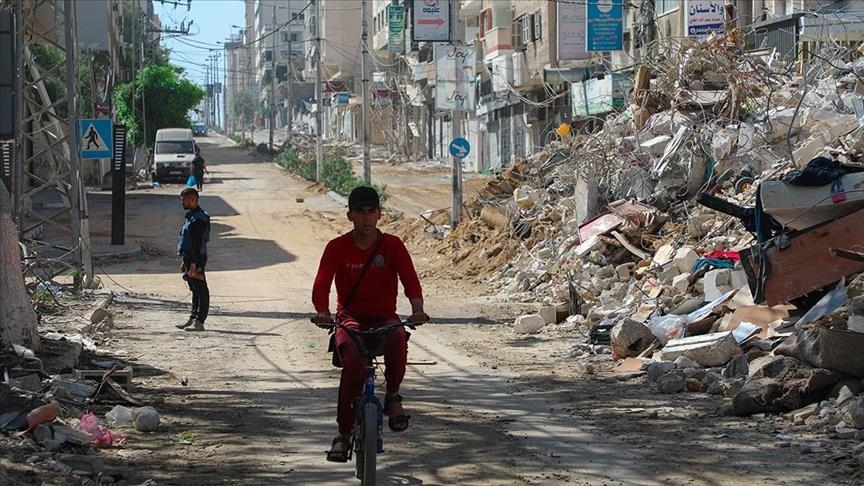After 11 days of war, Hamas and Israel accepted a cease-fire that put an end to this new round of violence, the sixth one since Israel’s withdrawal from the Gaza Strip in 2005.
It took the personal involvement of President Biden—who talked six times to Netanyahu during that conflict— for Israel to accept that cease-fire and for Egypt to give guarantees to Hamas in order to secure its agreement.
In Israel, only a third or so of the population supports that decision, the majority requiring , before any agreement is reached, the restitution of the two soldiers dead in 2014 and the release of the two Israeli civilians detained by Hamas for years now. More than two thirds of Israelis are still convinced that a new conflict will break out within the next three years.
How will Israel escape that vicious cycle of violence afflicting first of all civilians on both sides of the border ? If there is some hope to put an end to it, it must be understood first and foremost that there can be no military solution to this conflict. The army can only give time to the political ranks in order to allow them to find a compromise solution.
This is precisely the message Joe Biden sent to Israeli leaders. After blocking three decisions of the Security Council intending to impose a cease-fire, he affirmed his support, and his administration’s support, for Israel’s right to defend itself. He committed to provide it the means to do so, by renewing the missiles used by the defence system “Iron Dome“, that allowed Israelis to intercept 90 % of the 4400 rockets sent by Hamas on their cities (each missile costing $40000 to $50000). But he also demanded that the violence stops in Jerusalem, mentioning the riots on the Temple Mount, when the police broke into the Al Aqsa mosque in the middle of Ramadan, and the expulsions in Sheikh Jarrah, and he reiterated his support to the Two State Solution. It is a different pitch than the one that prevailed under the Trump administration which gave a blank cheque to Netanyahu. Of course, the pressure from 28 Democrat senators on the President, asking him to be more demanding and critical of the Israeli policy, probably played a role in Biden’s evolution. But it is also the result of a long experience, under Democrat or Republican administrations, leading him to try and solve the conflict.
As usual, Europeans are very divided on that issue. While most countries of Central and Eastern Europe supported Israel—14 Ministers for foreign affairs went to the scene during the conflict (among them, those from Germany, Greece, Austria…)— the rest of them did not condemn it. However, all of them still support the Two State Solution.
While, once again, the international community—tired to act as such—and Arab countries will be urged to finance the rebuilding of Gaza, it is necessary to take advantage of that international involvement to check that the funds deployed are in fact used for the intended purpose and do not help, like before, to rearm Hamas, -and at the same time, to resume negotiations between Israel and the Palestinian Authority, putting it back in its place of prominence. It is only by meeting the Palestinians’ expectations about their rights and by putting an end to the statu quo (disastrous for both parties), and to the Gaza blocus that these repeated conflicts will end. It is only by giving populations a reason to hope again that the influence of extremists on them will be undermined.






